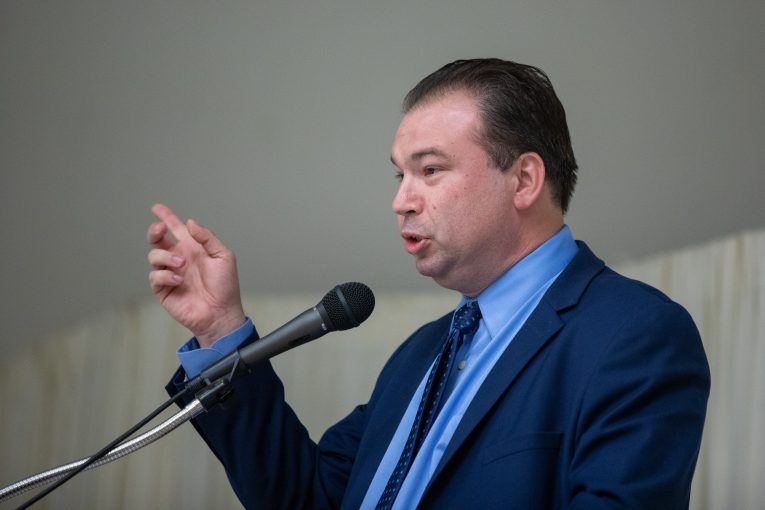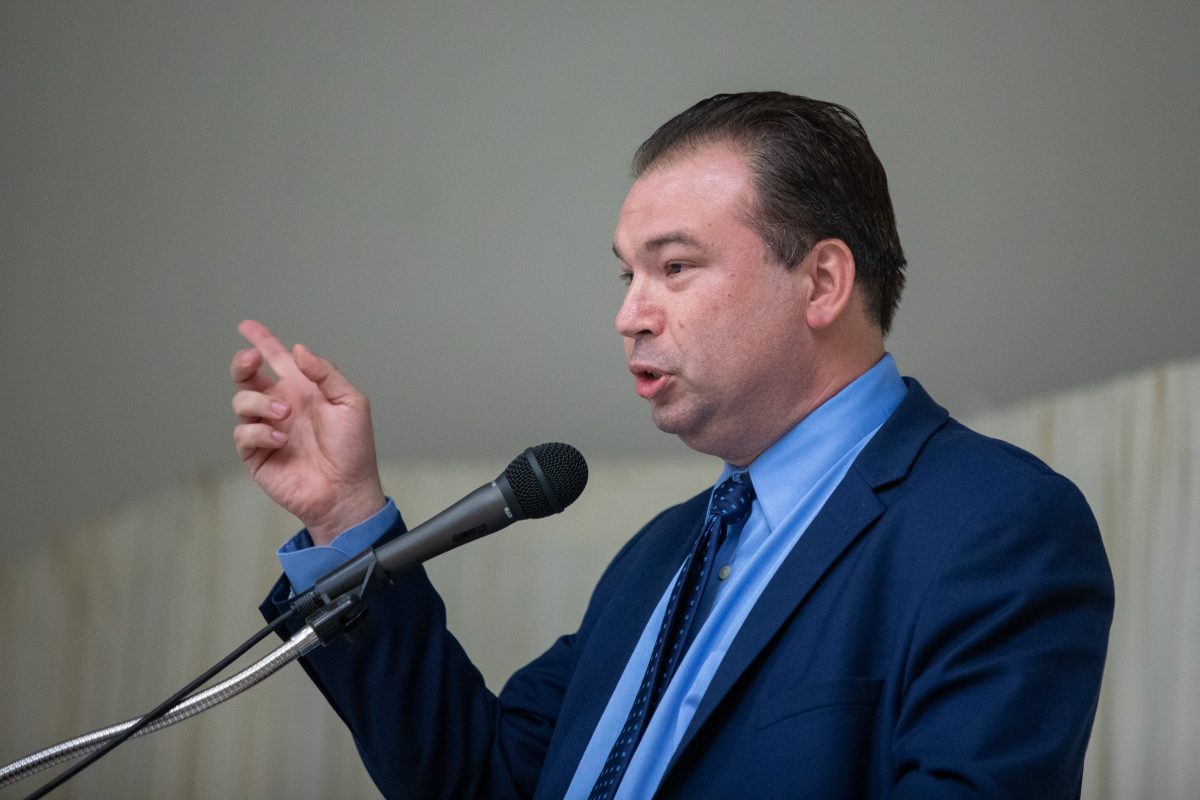

By Jeffrey Deskovic
“Looking back” will feature reprints of articles that Jeff previously wrote while a columnist at The Westchester Guardian, which encompass topics that are applicable here in CA as well as across the country and not simply applicable to NY.
On March 4, 2010, I wrote a Guardian column entitled “Time to End Prison Census Fraud” about a bill introduced by state Sen. Eric Schneiderman (D-NY) who represents the 31st Senate District and is a current candidate for Attorney General. The bill was co-sponsored by Assemblyman Hakeem Jeffries who represents the 57th Assembly district in Brooklyn. It is designed to put an end to prison census fraud.
Many New York prisons were built in rural communities upstate. Census Bureau guidelines allowed districts with prisons to count this non-voting, incarcerated population to beef up local population statistics. The inflated numbers were used to secure greater legislative representation and more government funds at the expense of prisoners’ home districts.
Convicts in the upstate prisons were never truly represented by local elected officials. To the contrary, this despised population is routinely ignored by the politicians who supposedly represent them.
During the sixteen years I was wrongfully incarcerated, prisoners wrote local elected representatives to complain about prison conditions and  abuse by the administration. Not one ever responded: no letters, visits, or follow up actions by these “representatives.”
abuse by the administration. Not one ever responded: no letters, visits, or follow up actions by these “representatives.”
Moreover, upstate elected officials often took positions detrimental to prisoners’ interests. For example, for years, upstate politicians fought against repeal of the draconian Rockefeller drug laws which put addicts in need of treatment in prison for longer terms than criminals who committed violent felonies.
Why? More than a third of all prisoners are incarcerated for drug crimes, and the percentage was higher when the Rockefeller drug laws were in force. The larger the prison population, the better it was for politicians in rural communities because the phony head count allowed them to disproportionately benefit from government largesse.
Likewise, upstate politicians fought against closing unneeded prisons which generated revenue in those communities at the expense of taxpayers statewide.
Peter Wagner is the executive director of the non-profit, non-partisan Prison Policy Initiative which documents the impact of mass incarceration on individuals, communities, and the national welfare. He released a public statement after passage of the Schneiderman bill, reciting the following facts:
- Seven New York state senate districts meet minimum population requirements only by claiming incarcerated people as residents;
- 40% of an Oneida county legislative district is incarcerated, as is 50% of a Rome city council ward;
- As a result, people who live next to area prisons have more influence than people in other districts or wards in the state;
- Prison-based gerrymandering is a national problem; and
- Maryland and Delaware passed corrective legislation.
Schneiderman’s bill directs the state Department of Corrections to submit residential data on prisoners—including their last known address before incarceration—to a state legislative task force which uses that data to redraw the state’s political map for reapportionment and redistricting. At stake are state legislative and congressional seats, along with billions in state and federal aid.
Not surprisingly, upstate politicians pushed back against Schneiderman’s bill with great force. To get it passed, Schneiderman knew he needed support.
A coalition was formed to back this legislation. Member groups included Citizen Action of New York, The Public Policy and Education Fund, The Prison Policy Initiative, New York Civil Liberties Union, Demos, Common Cause, the Brennan Center for Justice, Fortune Society, Bronx Defenders, Praxis Project, Correctional Association of New York, Community Service Society, New York City AIDS Housing Network (NYCAHN), Malcolm X Grassroots Movement, Center for Law & Social Justice, Nu Leadership Policy Group, and Prison Families of New York and Exponents.
On August 3, 2010, the Albany legislature finally passed the bill which currently awaits Gov. Patterson’s signature. Sen. Schneiderman exclaimed, “I’m really just excited. I spoke to the Governor and the Governor’s counsel, and I’m sure he’ll sign it. Once it’s signed, I will work with him and I will also work with the incoming administration to make sure that the ball doesn’t get dropped.”
Likewise, Jeffries said, “Inmate-based gerrymandering is an unfair practice that undermines the integrity of our democracy. The passage of this reform promotes the principle of equitable representation throughout New York, and results in a fairer process of redistricting. We will no longer tolerate the injustice of artificially enhancing the political power of a handful of communities on the backs of incarcerated individuals.”
Jeffries also told Our Time Press, “We send more individuals into the prison system than any county in New York.” As a result, political representation in Brooklyn (Kings county) is “far less than it otherwise should be,” he said. “There is a likelihood that we (democrats) may secure additional representation in either the Assembly or the Senate.”
Schneiderman hopes other states will pass similar reform legislation before 2012 redistricting takes place.
He told Black Voices News, “The other thing is that we have a coalition that we built over the past five or six years that includes the NAACP, David Jones and the Hip Hop Action Network, and Eddie Ellis and Edith Wagner from the Prison Policy Initiative. What we’re going to do is get together and figure out how to use this, and try to get other states in on this as well before the 2012 [redistricting] lines are drawn.”
After they are released, most prisoners return to the same counties, cities and towns from whence they came. hence, it never made sense that prisoners—temporary residents frequently moved around the state like pieces on a chess board—were counted as part of the local population and not the population of their home districts.
Schneiderman stands out as a leader who proposes smart and progressive legislation to improve our criminal justice system. he succeeded in passing this reform bill after many years based largely on smart coalition building and vital grass roots support.
In my own struggle against wrongful convictions, I am developing a grassroots group currently housed on Facebook as “Jeffrey Deskovic’s Innocence Team (NY).” I hope one day to have enough members to pass much needed anti- wrongful conviction legislation.
“Jeffrey Deskovic, Esq, MA, is an internationally recognized wrongful conviction expert and founder of The Jeffrey Deskovic Foundation for Justice, which has freed 9 wrongfully convicted people and helped pass 3 laws aimed at preventing wrongful conviction. Jeff is an advisory board member of It Could Happen To You, which has chapters in CA, NY, and PA. He serves on the Global Advisory Council for Restorative Justice International, and is a sometimes co-host and co-producer of the show, “360 Degrees of Success.” Jeff was exonerated after 16 years in prison-from age 17-32- before DNA exonerated him and identified the actual perpetrator. A short documentary about his life is entitled “Conviction“, and episode 1 of his story in Virtual Reality is called, “Once Upon A Time In Peekskill“. Jeff has a Masters Degree from the John Jay College of Criminal Justice, with his thesis written on wrongful conviction causes and reforms needed to address them, and a law degree from the Elisabeth Haub School of Law at Pace University. Jeff is now a practicing attorney.
